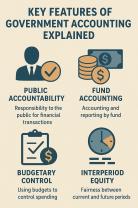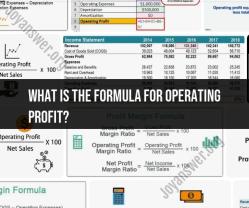What is the penalty for early retirement?
The penalty for early retirement typically refers to the reduction in retirement benefits that individuals may face when they start receiving Social Security benefits or employer-sponsored retirement plan benefits before reaching the full retirement age specified by those programs or plans. The specific penalties can vary depending on the retirement program and the age at which a person starts receiving benefits. Here are a couple of common examples:
Social Security: In the United States, Social Security benefits can be claimed as early as age 62, but the full retirement age (FRA) varies depending on your birth year. If you choose to start receiving benefits before your FRA, your benefits are reduced. The reduction can be up to 30% or more if you start at the earliest age of 62. If you delay taking benefits beyond your FRA, your benefits can increase up to age 70. It's essential to understand the specific reductions and increases based on your birth year and claiming age.
Employer-sponsored retirement plans: Some employer-sponsored retirement plans, like 401(k)s or pensions, may impose penalties or reduce the amount of retirement benefits if you choose to retire before a certain age specified in the plan's terms. These penalties can vary widely depending on the specific plan and its rules.
It's important to check the rules of your specific retirement plan and understand the penalties that may apply if you're considering early retirement. Additionally, you should consider your overall financial situation and retirement goals before deciding to retire early, as reduced benefits may impact your long-term financial security. It's often a good idea to consult with a financial advisor to help you make informed decisions about early retirement.
Early Retirement Penalties: What to Expect When Retiring Early
Early retirement can be an attractive option for many individuals, offering the freedom to pursue personal interests, spend more time with loved ones, or simply relax and enjoy life. However, it's important to be aware of the potential financial consequences of retiring early. One of the most significant considerations is the early retirement penalty imposed by the Internal Revenue Service (IRS) on withdrawals from retirement accounts before age 59½.
10% Early Withdrawal Penalty
The IRS imposes a 10% early withdrawal penalty on distributions from retirement accounts, such as 401(k)s and traditional IRAs, if taken before the age of 59½. This penalty applies to both taxable and non-taxable distributions. For example, if you withdraw $10,000 from your 401(k) at age 55, you would be subject to a $1,000 penalty in addition to the income tax you would owe on the distribution.
Exceptions to the Early Withdrawal Penalty
There are a few exceptions to the early withdrawal penalty. These exceptions include:
Substantially equal periodic payments (SEPPs): You can withdraw money from your retirement account penalty-free if you take substantially equal periodic payments for at least five years or until you reach age 59½.
Qualified higher education expenses: You can withdraw money from your retirement account penalty-free to pay for qualified higher education expenses for yourself, your spouse, your dependents, or your children's spouses.
Qualified medical expenses: You can withdraw money from your retirement account penalty-free to pay for unreimbursed medical expenses that exceed 7.5% of your adjusted gross income.
Qualified first-time homebuyer expenses: You can withdraw up to $10,000 from your retirement account penalty-free to buy, build, or rebuild your first home.
Disability: You can withdraw money from your retirement account penalty-free if you become disabled before reaching age 59½.
Planning for Early Retirement
If you are considering early retirement, it is important to plan carefully to avoid the early withdrawal penalty. Here are a few tips:
Build a large enough nest egg: The larger your nest egg, the less likely you will need to withdraw money from your retirement accounts before age 59½.
Max out your retirement contributions: The more you contribute to your retirement accounts each year, the more time your money will have to grow.
Invest in a diversified portfolio: A diversified portfolio can help you reduce your risk and potentially increase your returns.
Consider working part-time: Working part-time in retirement can provide you with additional income and help you delay tapping into your retirement savings.
Consult with a financial advisor: A financial advisor can help you develop a retirement plan that meets your specific needs and goals.
Early retirement can be a wonderful opportunity to enjoy life on your own terms. However, it is important to be aware of the potential financial consequences of retiring early. By planning carefully and taking advantage of the available exceptions, you can minimize the impact of the early withdrawal penalty and enjoy a secure and comfortable retirement.













